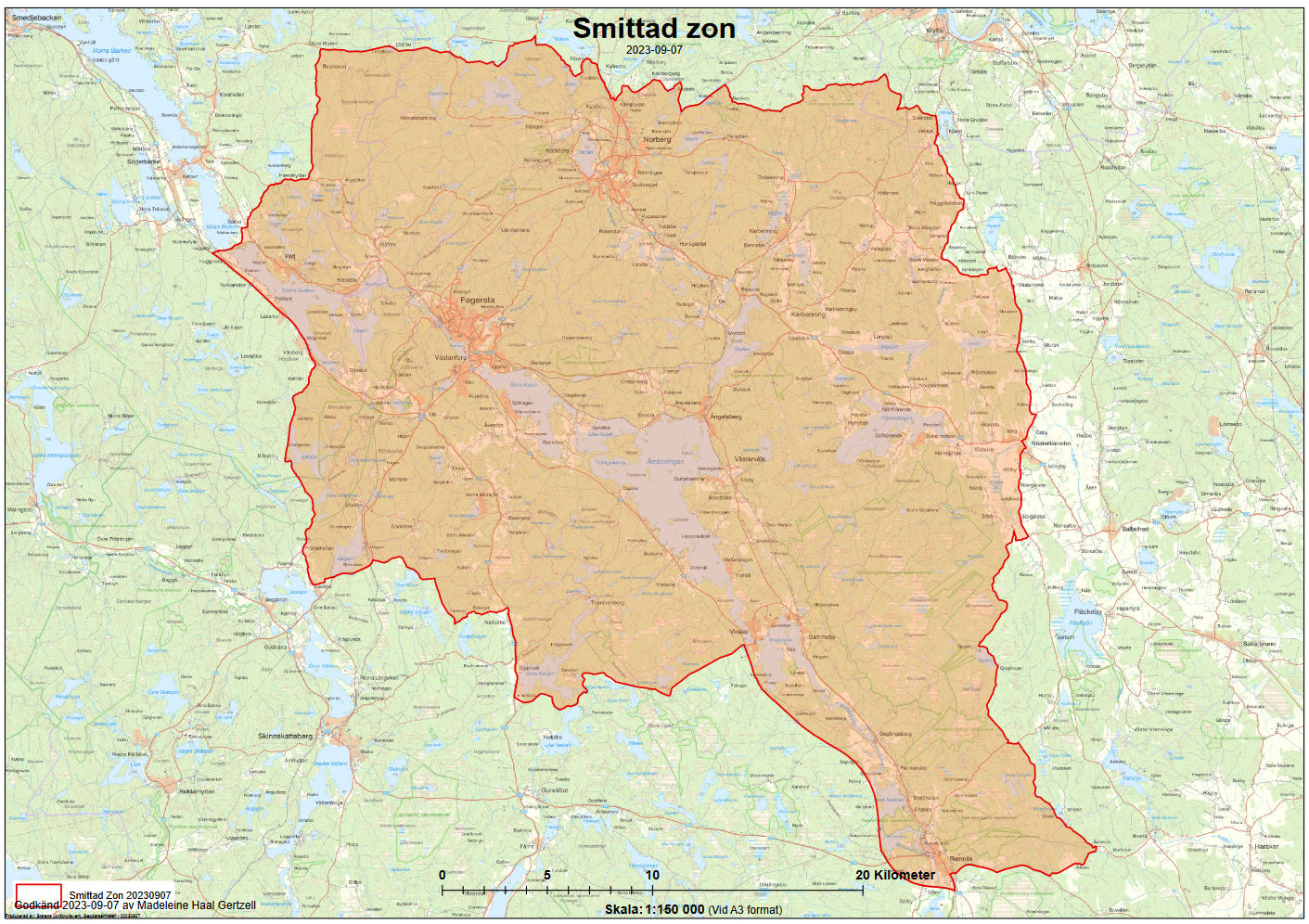UPDATED 18 SEPTEMBER 2023 | The Swedish land usage authority (Jordbruksverket) has declared a massive 1000 square kilometres (620+ sq mi) as a no-go zone for jogging, hunting, picking berries and all other human activities in the forrest that are non-essential.
The African Swine Flu keeps surfacing in Sweden. Since announcing the first case on 6 September, a total of 34 wild boars were found with the highly contagious disease (status 18 Sep 2023). In the past weekend, 400 hunters took part in a search for wild dead boars that might have the disease.
The area concerned includes vast areas around Fagersta, Ängelsberg, Norberg, Västerfärnebo, Virsbo and Ramnäs in the Västmanland region. The region is relatively popular among Swedish and international tourists, although many choose to go a little bit further north into the Lake Siljan area and the rest of Dalarna county.
“All activities where people stay in forest and land outside marked plot boundaries and outside the established competition course are prohibited. This also applies to sporting events, gatherings and public functions,” a statement by Jordbruksverket reads.
Forest walks outside marked roads are also prohibited, as well as bathing in non-designated areas, riding of any kind, farm auctions/loppis and hiking. Parties on somebody’s personal property are still allowed, if the host has been inviting you of course.
Friday’s decision comes after the African Swine Fever (ASF) was found in a dead wild boar in the Fagersta area on Wednesday.
“African swine fever (ASF) is a contagious and fatal viral disease that affects domestic pigs and wild boar. The virus that causes the disease is very resistant and survives for a long time in the environment and in meat from infected animals, even if the meat has been frozen. African swine fever is not contagious to humans. It can be very costly to combat,” the Jordbruksverket statement reads. | © 2023 Marcel Burger, nordicreporter.com. Featured image: marked area by Jordbruksverket
